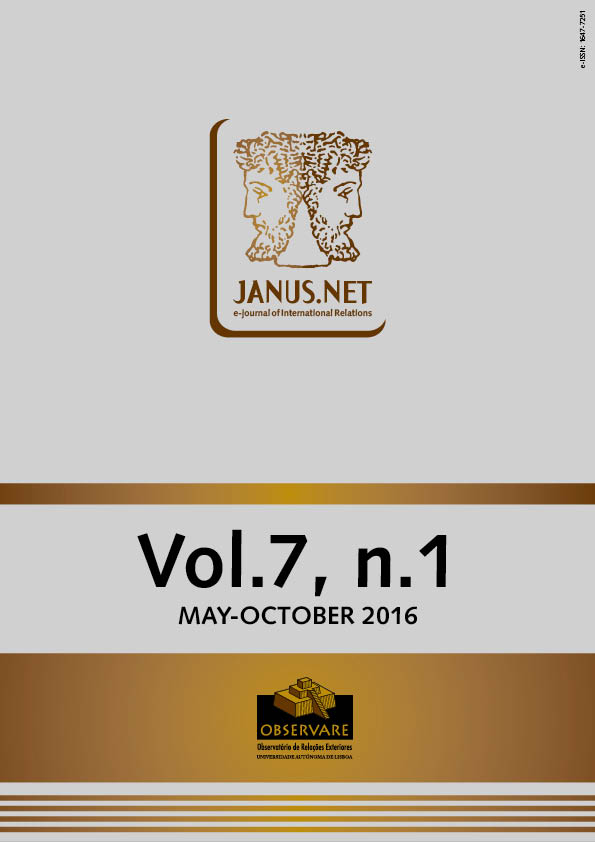Understanding the initiation of conflict is fundamental for the success of efforts in conflict prevention. The validity of the mechanisms of the “Greed and Grievance” model, alongside leadership and external interventions are tested in four periods of initiation and intensification of the conflict in Angola. All mechanisms are present but their relative relevance varies throughout the conflict. Among the mechanisms identified in each period the most relevant in the Cold War period are the international and regional interventions in 1961 and 1975 and in the post-Cold War period, the “greed” factors in 1992 (oil and diamonds, poverty and war capital) and the UNITA leadership of Jonas Savimbi in 1998. The case study provides evidence that “greed” and “grievance” can be interlinked (such as in 1992) and confirms the relevance of leadership and external interventions mechanisms.
GREED, GRIEVANCE, LEADERSHIP AND EXTERNAL INTERVENTIONS IN THE INITIATION AND INTENSIFICATION OF THE CIVIL WAR IN ANGOLA
Assistant Professor at Autonomous University of Lisbon (UAL, Portugal) and integrated researcher at OBSERVARE. He has a PhD from the International Institute of Social Studies (ISS) Erasmus University of Rotterdam (EUR) in the Netherlands. He was part of the Research School in Peace and Conflict (PRIO / NTNU / UiO) in Norway and associated with the African Studies Center (CEA) Lisbon University Institute (IUL) in Portugal as a researcher on conflict. He has a Master of Science in Development Studies from the School of Oriental and African Studies (SOAS) of the University of London, a post-graduation diploma of advanced studies in African Studies and a Bachelor (Hons) degree in Business Administration, both from the Lisbon University Institute.
Resumo
Palavras-chave
Como citar este artigo
Sousa, Ricardo Real P. (2016). “Greed, grievance, leadership and external interventions in the initiation and intensification of the civil war in Angola”. JANUS.NET e-journal of International Relations, Vol. 7, Nº 1, May-October 2016. Consulted [online] on the date of last consultation, http://hdl.handle.net/11144/2623
Article received on 16 February, 2016 and accepted for publication on 12 April, 2016















